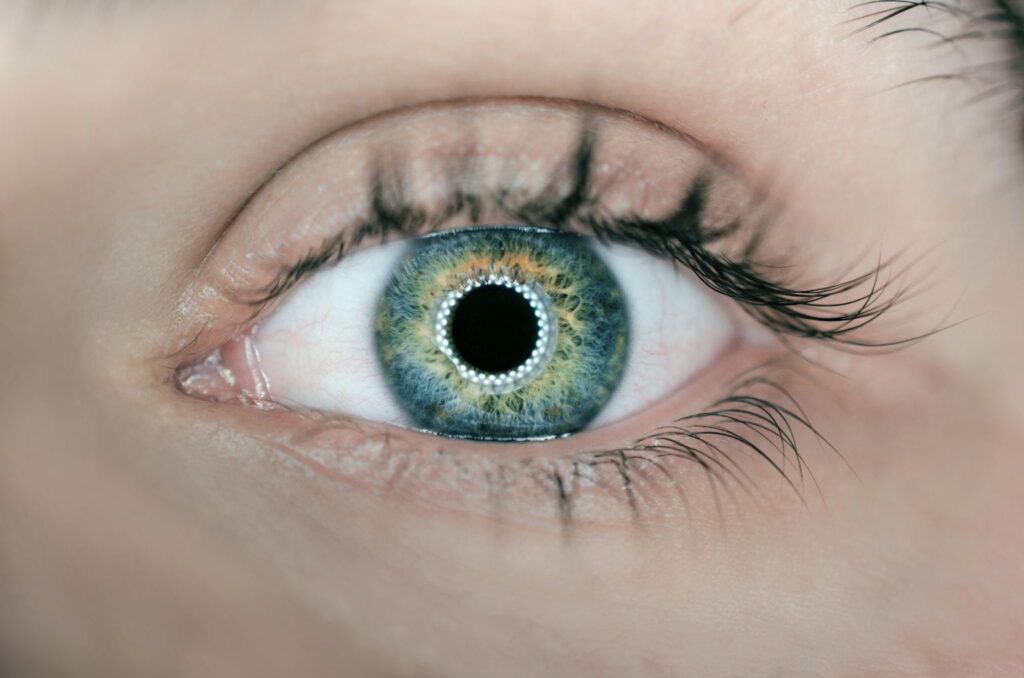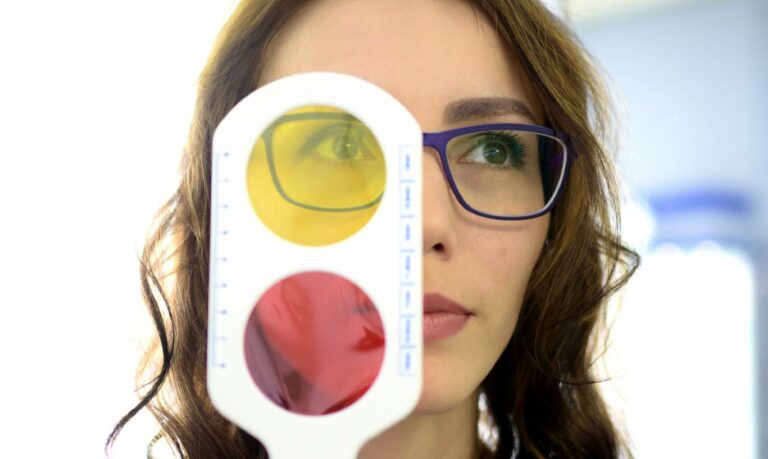Age-Related Macular Degeneration (AMD) is the leading cause of severe vision loss in those who are 50 years of age and older.

In the year 2010 there were 9.1 million cases of early AMD in the United States, and this number is expected to increase to over 17.8 million by the year 2050.
As of now, there is no known cure for any type of AMD; however, your eye care provider can give advice on lifestyle changes you can take to lower your risk of vision loss associated with AMD, manage the symptoms of AMD, and recommend treatment to slow down the progression of the disease.
The specific factors that cause macular degeneration are inconclusive. What is known about Age-Related Macular Degeneration is the causes are complex and linked to a combination of heredity and environmental factors.
Two Types of AMD:
Dry AMD
Dry AMD is the more common form of the disease, accounting for about 80-90% of those affected by AMD.
Dry AMD occurs as tissue in the macula, or the area of the eye responsible for our central vision, thins and stops working properly. Tiny clumps of protein waste material called drusen develop within the macula, leading to further tissue disruption and vision loss.
Unfortunately, there is no way to treat dry AMD, but studies have shown people may slow it’s progression by taking these vitamins and minerals daily:
- Vitamin C (500 mg)
- Vitamin E (180 mg)
- Lutein (10 mg)
- Zeaxanthin (2 mg)
- Zinc (80 mg)
- Copper (2 mg)
As always, please check with your doctor(s) before beginning any new medical regimen. If you have questions about medications or wish to speak with one of our doctors, schedule an appointment with us.
Wet AMD
Wet AMD is less common but more serious. Wet AMD occurs when new, abnormal blood vessels grow under the retina. These new vessels may leak blood or other fluids, which causes scarring of the macula. Typically, patients lose vision faster with wet AMD than with dry AMD.
There are several different medications and treatments to assist in the management of wet AMD. These are administered through injections or laser surgery to reduce the number of abnormal blood vessels in your macula, therefore slowing down the leaking of those abnormal vessels.
While we do not perform those treatments indicated for wet AMD in our offices, we will be happy to direct you to an ophthalmologist who can help you.
Stages of Macular Degeneration
There are three stages of Age-Related Macular Degeneration:
- Early AMD – Most people do not experience symptoms during the early stages of the disease, which is why it is so important to have an annual eye exam, including dilation, to detect any growth of drusen in the retina.
- Intermediate AMD – Patients may experience some vision loss at this stage of AMD, but there still may not be any definitive symptoms that the disease exists. A comprehensive exam with one of our doctors at VisionFirst will detect any build-up of drusen or pigment changes in the retina.
- Late AMD – At this stage, vision loss has become noticeable. Exploration of other options may be necessary through your doctor.
Unfortunately, most people don’t realize they have AMD until their vision is very blurry or wavy.
By scheduling an annual dilated exam with one of our doctors at VisionFirst, we can look for risk factors and early signs of AMD before you experience any vision problems.






